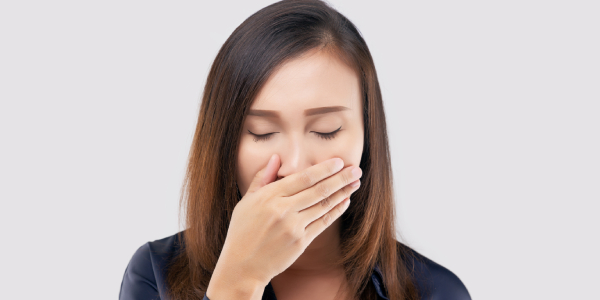
Fart Burps: Understanding and Managing the Smelly Phenomenon
Burping and farting are common bodily functions that help release excess gas from the digestive system. However, what happens when your burps take an unexpected turn and start smelling like farts, leaving behind an eggy taste? Welcome to the world of fart burps, also known as sulphur burps. In this article, we will delve into the causes, symptoms, and treatment options for fart burps, as well as explore ways to prevent their occurrence.
What Are Fart Burps?
Fart burps, also referred to as sulphur burps, are belches that carry a distinct odor reminiscent of flatulence. These burps often have an eggy taste and are accompanied by the release of foul-smelling gas. The odor is primarily due to the presence of hydrogen sulfide gas in the digestive system, which has a characteristic smell similar to rotten eggs.
What Causes Fart Burps?
Fart burps can have various causes, including:
- Consuming Sulphur-Rich Foods: Certain foods high in sulfur content can contribute to the production of hydrogen sulfide gas in the digestive system. Some examples include eggs, meat, cruciferous vegetables (such as broccoli and cauliflower), and legumes.
- Gastrointestinal Infections: Infections caused by bacteria or viruses can disrupt the normal functioning of the digestive system, leading to an overgrowth of sulfur-producing bacteria and resulting in fart burps. These infections may be accompanied by symptoms such as diarrhea.
- Gastroesophageal Reflux Disease (GERD): GERD is a condition in which stomach acid flows back into the esophagus, causing acid reflux and sometimes belching. The regurgitated stomach acid can have a foul smell, resembling that of flatulence.
- Digestive Disorders: Certain gastrointestinal disorders, such as H. pylori infection, irritable bowel syndrome (IBS), or malabsorption issues, can disrupt the normal digestive process and contribute to the production of foul-smelling gas and fart burps.
What Foods Cause Fart Burps?
While the sulfur content in foods is often associated with fart burps, it is important to note that individual reactions can vary. Here are some foods that may contribute to the production of sulfur gas and result in fart burps:
- Eggs
- Meat, particularly red meat
- Cruciferous vegetables (e.g., broccoli, cauliflower, cabbage)
- Legumes (e.g., beans, lentils)
- Dairy products
- Onions and garlic
- Certain spices (e.g., cumin, curry powder)
- High-sulfur vegetables (e.g., asparagus)
- Alcohol, particularly beer and wine
- Carbonated beverages
Why Do I Feel Sick and Have Eggy Burps?
In addition to fart burps, individuals experiencing sulphur burps may also experience other symptoms, including nausea, stomach pain, and even diarrhea. These accompanying symptoms may be indicative of an underlying gastrointestinal issue or infection, such as gastroenteritis. If you consistently experience these symptoms, it is recommended to seek medical advice for a proper diagnosis and appropriate treatment.
How to Treat Fart Burps?
The treatment of fart burps depends on the underlying cause. Here are some strategies that can help alleviate the symptoms:
- Dietary Adjustments: Identify and avoid foods that trigger fart burps, particularly those high in sulfur content. Keeping a food diary can help track your reactions and pinpoint specific culprits.
- Digestive Enzymes: Over-the-counter digestive enzyme supplements, such as those containing alpha-galactosidase, can help break down complex carbohydrates and reduce the production of gas.
- Probiotics: Probiotic supplements or consuming foods rich in beneficial bacteria can help restore the balance of gut flora and aid in digestion, potentially reducing the occurrence of fart burps.
- Medications: In cases where fart burps are associated with underlying conditions like GERD or gastrointestinal infections, your healthcare provider may prescribe medications such as proton pump inhibitors (PPIs) or antibiotics.
How to Avoid Fart Burps?
While it may not be possible to completely eliminate fart burps, you can take preventive measures to reduce their frequency:
- Eat Mindfully: Chew food thoroughly and eat slowly to aid digestion and minimize the intake of air, which can contribute to gas production.
- Maintain a Balanced Diet: Include a variety of foods in your diet and focus on whole, unprocessed foods. Gradually introduce sulfur-rich foods and monitor your body’s response.
- Stay Hydrated: Drinking enough water can help promote proper digestion and prevent constipation, which can contribute to excessive gas production.
- Manage Stress: Stress can impact digestion, so finding healthy coping mechanisms to manage stress levels, such as exercise, meditation, or engaging in hobbies, can help minimize digestive issues.
Fart burps, or sulphur burps, can be an unpleasant and embarrassing experience. While they are usually harmless, persistent symptoms or accompanying stomach pain should be discussed with a healthcare professional. Understanding the causes, making dietary adjustments, and seeking medical advice when necessary can help manage fart burps and improve overall digestive health. Remember, this article is for informational purposes only, and it is always recommended to consult a licensed medical professional for personalized guidance.
Disclaimer: This article is not a substitute for professional medical advice. Always consult a licensed healthcare provider for accurate diagnosis and appropriate treatment options.

